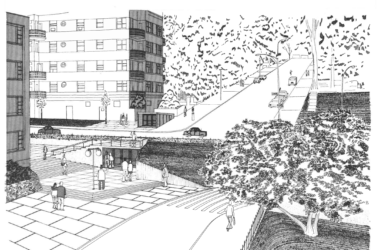It’s a busy, hectic time of year. Exams are breathing down your neck, and papers and reading are piling up impossibly in your planner and on the floor of your apartment. During this last push, it’s critical to make sure your study environment and habits are helping you instead of hindering your success. Implementing a few organizational and atmospheric changes now may seem like just another chore crammed into an overloaded day, but it’s actually a great way to breathe fresh air back into your study routine, providing a burst of new found motivation when the going’s gotten rough.
You do have a planner, don’t you? A major source of procrastination comes from feeling overwhelmed, which comes from losing track of short- and long-term tasks. A planner can give you a sense of temporal perspective, helping you determine when you have windows of time for play rather than work. Experiment and determine whether you prefer an app on your smartphone, a plain or lined Moleskine, a day-by-day agenda, or some combination thereof.
In order to feel like working, your workspace needs to be inviting. I convinced myself that I was content to work in organized chaos, but after trying out the tidy side, I’m never going back. A clutter-free surface for your notebooks and/or your laptop is a must, followed by a comfortable upright chair (definitely not a bed or a sofa) and a window view or at least a poster you like, for resting your eyes when you’re in the zone. If you have the means, some accordion file-folders or decorative cardboard boxes for overflow papers and returned assignments will help keep the surface clear.
If you find that you’re still having difficulty settling in to study or write that essay, evaluate your pre-work ritual. It’s tempting to work from the comfort of your own room, where there’s limitless access to snacks and you don’t have to change out of your pyjamas to tear through an assignment on Sunday. But by making study into a kind of work by getting dressed and even going out to a coffee shop or library, you cue your brain into recognizing that it’s work time, not relaxing time.
To prevent the days from blending together into a hopeless sea of unfinished tasks, keep a work log. This will make it easier for you to hold yourself accountable when you’ve gone a week without studying, but it will also make it easier for you to celebrate your successes. More importantly, as you continue your education, you’ll gain a sense of how long certain tasks actually take, and this will help you plan your time in the future.
If you still find your brain digging in its hooves and refusing to budge, use a little carrot-and-stick psychology. Tempt yourself to work hard with a reward that’s proportionate to the task (and your budget). For getting a good grade on a big essay, treat yourself to a concert or an evening in with friends. For medium-effort assignments, a meal out or a piece of clothing will suffice to light the fire. If even little things are slipping by unaddressed, appeal to your sweet tooth or your love of stamps (whatever works for you) to pull you through. Make sure there’s also a stick to push you from behind; not only will you not buy yourself that concert ticket if those ten thousand words aren’t written, but you’ll have to opt out of some plans you already made for the weekend.
Finally, be honest and gentle with yourself about what works for you and what doesn’t. Working habits often take years to iron out in the changeable, temptation-filled university environment. Just do your best, and keep your mind attuned to winning strategies and old habits that don’t serve you well.
Now, if I could only practice what I preach.








